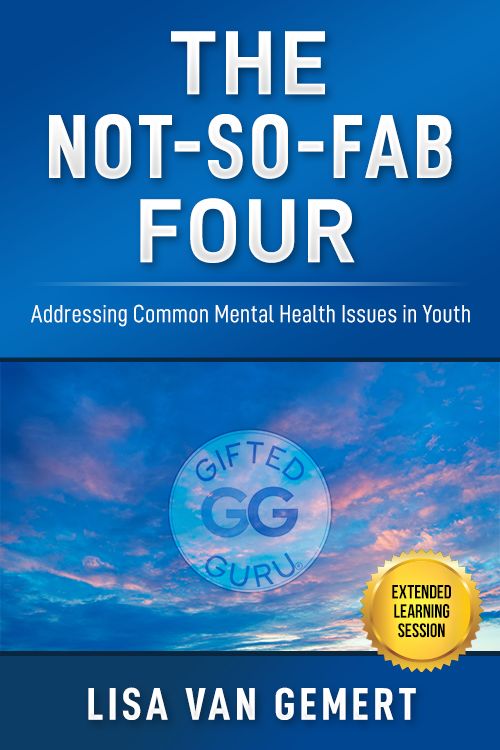Mental health, especially among teenagers and young adults, requires immediate attention. With the myriad of challenges young individuals face today, understanding the intricacies of their mental well-being is paramount for all educators. Lisa Van Gemert’s enlightening extended learning session, The Not-So-Fab Four: Addressing Common Mental Health Issues in Youth, offers a deep dive into this subject, shedding light on the nuances of common mental health issues.
Depression: More Than Just Sadness
Depression in youth is a complex issue; it’s not merely about “feeling sad” or “down.” As highlighted in this session, there’s a crucial distinction to be made between “feeling sad” and depression. As Lisa Van Gemert points out, “You can’t be diagnosed with depression if it’s a symptom or correlates with something else. For instance, if ADHD is causing the depression, the depression is secondary to the ADHD.” This revelation underscores the importance of comprehensive diagnosis and understanding the interconnectedness of mental health challenges.
The Role of Medication and Its Implications
Medication, while beneficial for many, comes with its own set of challenges. For instance, certain ADHD medications can lead to unpleasant side effects such as moodiness, drowsiness, and dry mouth. It’s essential for educators to be mindful of these symptoms and to provide the necessary support. Ensuring that students have access to water, especially if they’re on medication that causes dry mouth, is a small but impactful way to support their well-being and demonstrate empathy.
Promoting Positive Self-Talk
The power of perception cannot be understated. How one views oneself, especially during challenging times, can shape their resilience and overall mental health. “Positive self-talk doesn’t have to mean blowing smoke about how amazing they think they are. It’s about being realistic, acknowledging challenges, and focusing on improvement,” says Van Gemert. Encouraging this mindset can equip students to handle challenges more effectively, fostering a growth mindset.
Strategies for Success in the Classroom

Educators play a pivotal role in shaping a student’s experience, especially those grappling with mental health challenges. From understanding the nuances of each disorder to promoting positive self-talk, several strategies can be implemented:
- Validation: While it’s not always necessary to agree with a student’s interpretation of events, validating their experiences can make a significant difference. Simple acknowledgments like “I know things are hard for you right now” can offer comfort and assurance that you care.
- Reframing Negative Thoughts: Helping students identify and reframe negative thoughts can empower them. Instead of dwelling on mistakes, they can be taught to focus on learning and improvement.
- Modeling Behavior: Educators can lead by example. By acknowledging their own mistakes and approaching them with a positive attitude, they can demonstrate to students that making mistakes is a natural part of learning and growth.
Final Thoughts
It’s evident that the challenges our youth face are multifaceted. However, with the right knowledge, tools, and strategies, we can make a positive impact on our students’ lives. Lisa Van Gemert’s “The Not-So-Fab Four: Addressing Common Mental Health Issues in Youth – Extended Learning Session” serves as a beacon, guiding all those dedicated to the well-being of our youth. As we continue to navigate these challenges, remember the importance of understanding, empathy, and informed action.


